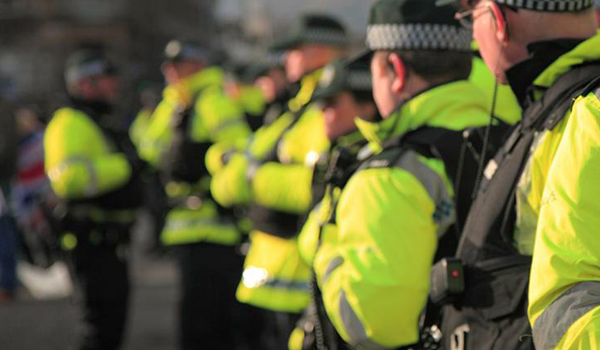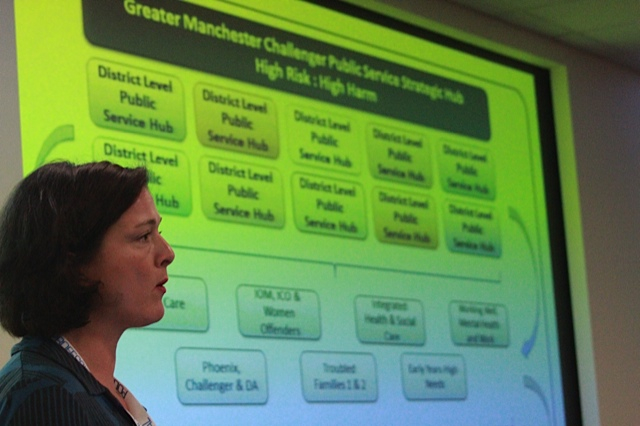Resilient leadership
Marzenna Almendro explores the characteristics that define an exemplary police leader and how psychometric assessments can help uncover the essential competencies for the ideal leadership profile.
It is a harsh, but unavoidable fact that some of the most important leadership lessons are borne of the direst of circumstances. Few will forget, for instance, the tragedy of Hillsborough in 1989, when 96 Liverpool fans lost their lives, and hundreds more were injured due to the overcrowding and inadequate crowd control measures, which led to a tragic crush in the standing sections of the stadium.
Much has been said about how this disaster was exacerbated by the lack of a coordinated and effective response by police and emergency services. In the aftermath, it became clear that something had gone very badly wrong, both in preparing police personnel to handle such a crisis situation, and supporting their resilience and ability to effectively manage the high-pressure environment in the moment. A similar picture arose from the Manchester Arena bombing some years later.
Not all catastrophes are as obvious as these events. But a crucial soft skill requirement common to all is resilience. So what part does this play during the recruitment and selection process, and how can it be developed and re-enforced as police officers progress their careers, not least into leadership positions?
Police leaders hold pivotal roles that require a unique set of skills and behaviours to navigate complex situations and foster resilient teams.
In this article, we explore the concept of resilient leadership, identify some of the characteristics that define an exemplary senior leader, and discuss how psychometric assessments can help uncover the essential competencies for the ideal leadership profile.
Resilient leadership in policing
Resilient leadership refers to the ability to lead teams through adversity, inspire confidence and make effective decisions in high-pressure situations. These leaders possess a specific set of competencies that enable them to adapt, remain composed, and build resilient teams capable of overcoming challenges.
Some of these valuable key traits are:
- Emotional intelligence: It is crucial for police leaders to understand and manage their own emotions and empathise with their team members and the communities they serve. This quality enables them to build strong relationships, diffuse conflicts, and effectively communicate during critical incidents.
- Decisiveness: Leaders must make tough decisions swiftly and confidently. Decisiveness is crucial in critical situations, as it instils trust and provides clear direction to their teams. Decisive leaders assess information objectively and take action when necessary.
- Adaptability: Policing landscapes are dynamic, requiring leaders who can adapt to changing circumstances. Leaders must be flexible and open-minded, ready to adjust strategies and tactics to effectively address emerging challenges.
- Resilience and stress management: Leading a police force can be demanding and stressful. Resilient leaders possess the ability to withstand pressure, bounce back from setbacks, and maintain composure in stressful situations. They also prioritise self-care and promote the wellbeing of their team members.
In September 2012, two female officers on routine patrol were murdered after being deliberately lured to the reported scene of a burglary by Dale Cregan. The divisional commander of Greater Manchester Police at the time was Nick Adderley, who knew the officers well. Mr Adderley has since admitted that the incident left him “unable to get out of bed for more than a week” and struggling with his mental health. For an officer that always had a plan, he suddenly had no plan.
Resilient leaders possess the ability to withstand pressure, bounce back from setbacks, and maintain composure in stressful situations
Unable to recognise his need for professional support himself, a senior colleague persuaded him that despite thinking he should be able to sort everything out for himself, he did need an actual intervention. Through talking with a professional therapist, he was able to develop the coping mechanisms to be able to deal with his experience, and now encourages anyone else to do the same. He is leading by example, and demonstrating the strength in admitting vulnerability and taking action to address it.
In the case of the 7/7 London bombings in 2005, the resilience demonstrated by Sir Ian Blair, the Metropolitan Police Commissioner at the time, is considered by many to be pivotal in averting further catastrophe.
In the face of criticism, he is said to have remained focused on the task at hand, displaying resilience in navigating challenges and learning from the incident to improve the police response. It was through this resilient leadership that the police force effectively managed the aftermath of the bombings, preventing additional attacks and restoring a sense of security to the city.
Sir Ian reportedly led with composure and decisiveness in the face of the rapidly unfolding crisis, swiftly mobilising resources and coordinating emergency services. Effective communication reassured the public, disseminated critical information, and maintained trust amidst the chaos. Prompt strategy reviews, identification of vulnerabilities, and implementation of enhanced security measures to counter future threats demonstrated adaptability and flexibility.
So how can these traits be identified when selecting for police leadership?
Using psychometric assessments
Psychometric assessments are sometimes seen in a negative light, as a means for deselection.
There can be criticisms around the impact that feeling under stress when taking them, having an ‘off’ day, or even the context of the questions for neurodiverse people, can have in creating a ‘negative’ result. But when used appropriately by trained and BPS (British Psychological Society)-registered facilitators, psychometric assessments can provide valuable insights into an individual’s personality, skills, and behaviours.
They offer an objective and standardised way to evaluate potential candidates for leadership positions, beyond what can be evaluated from a CV, or seen in the here and now. By incorporating these tools in the selection and development processes, organisations can identify candidates who possess the necessary competencies for resilient leadership. (And candidates have the right to ask for their feedback, so they can gain awareness of areas to nurture and develop within themselves).
These assessments can measure competencies such as emotional intelligence, decision-making style, adaptability, stress tolerance, and leadership potential. By analysing the results, organisations can gain a comprehensive understanding of a candidate’s strengths, weaknesses, and areas for development. Additionally, psychometric assessments can aid in identifying high-potential individuals within the police force who may exhibit the skills and behaviours required for leadership positions.
Psychometric assessments are not the sole determinants of leadership potential, but used wisely, and with well-honed insight, they do serve as valuable tools to inform decision-making processes.
They complement other evaluation methods, such as interviews, performance evaluations and assessment centres, to provide a holistic view of a candidate’s suitability for a leadership role.
Marzenna Almendro is Client Solutions Manager at Blackmore Four. An expert in the field of leadership development, she has a BA Honours in Psychology and is a member of the British Psychology Society. She is also a qualified and registered Psychometric Test User (Occupational Ability and Personality Assessments).
Blackmore Four is an independent consulting company based in Essex, offering specialist advice for organisations seeking to improve performance and foster resilient and bias-aware leadership. https://blackmorefour.co.uk/






